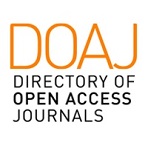Rethinking Fashion
Ethics, Sustainability, and the Role of Non-Hegemonic Clothing
DOI:
https://doi.org/10.29147/datjournal.v10i2.889Keywords:
Inclusive Fashion, Indigenous Clothing, Sustainable Fashion, Non-Hegemonic Fashion, Non-Western ClothingAbstract
In recent years, the fashion system has undergone significant deterioration. The obsession with growth, mass production, and globalized aesthetics has transformed the fashion and garment industry into a space marked by ethical and environmental neglect. In response, a complex movement has emerged within the field, seeking to challenge and transform this reality. Designing ethical and sustainable fashion has become a central challenge, opening space for new analyses and critical inquiry. This theoretical essay aims to provoke reflection on the process of ethicization in fashion and explores how certain non-hegemonic and non-Western forms of clothing can offer innovative perspectives on the key issues and challenges currently facing the field. This reflection is illustrated through the case of the Cuentepec woman, whose clothing practices, situated outside the dominant fashion system, reflect a distinct worldview and deep social integration. The essay calls for a dialogue among designers and scholars to deconstruct prevailing paradigms and foster a more comprehensive, inclusive, and culturally sensitive approach to fashion.
Downloads
References
BARTHES, Roland. Sistema da moda. São Paulo: Martins Fontes, 2009.
BERLIM, L.; SCHULTE, N. Moda ética, um novo olhar sobre o novo. Revista dObra[s], n. 32, 2021.
CARDOSO, Rafael. Uma introdução à história do design. São Paulo: Edgard Blucher, 2008.
CARVALHAL, André. Moda com propósito: Manifesto pela grande virada. São Paulo: Paralela, 2016.
DE BRITTO, L. R. G.; COUTINHO, O. M.; MIRANDA, A. P. C.; CAMILO, E. O ato de presentear como processo de sacralização: o escapulário como símbolo de amor e proteção. Barbarói, n. 58, p. 230–242, 2021.
EDELKOORT, Lidewij. Anti-fashion: A manifesto for the next decade. Paris: Trend Union, 2015.
ESCOBAR, Arturo. Más allá del Tercer Mundo: Globalización y diferencia. Bogotá: Instituto Colombiano de Antropología e Historia, 2005.
GONZÁLEZ, Laura; SANTANA, Yesenia. Diagnóstico participativo comunitario San Sebastián Cuentepec, Morelos. México: Universidad Autónoma del Estado de Morelos, Centro de Investigación en Ciencias Sociales y Estudios Regionales, 2020.
HERREJÓN, Carlos. Tradição: esboço de alguns conceitos. Revista Relaciones, v. 15, n. 59, p. 135–149, 1994.
INGOLD, Tim. Antropologia: Para que serve? Petrópolis: Vozes, 2019.
INSTITUTO NACIONAL DE ESTADÍSTICA Y GEOGRAFÍA (INEGI). Archivo histórico de localidades geoestadísticas: Histórico de movimientos de Cuentepec, Temixco, Morelos. Disponível em: https://n9.cl/sxmn4. Acesso em: 12 jul. 2024.
LIPOVETSKY, Gilles. O império do efêmero: A moda e seu destino nas sociedades modernas. São Paulo: Companhia das Letras, 1989.
MARGOLIN, Victor. A política do artificial: Ensaios e estudos sobre design. Rio de Janeiro: Record, 2014.
MENEGHETTI, F. K. O que é um ensaio-teórico? Revista de Administração Contemporânea, v. 15, n. 2, p. 320–332, 2011.
ORIHUELA GALLARDO, M. del C. El papel de las mujeres en la transición cultural de Cuentepec, Morelos. Disparidades. Revista de Antropología, 2021.
PINEDA, Jorge Luis. Cuentepec apron: Uses and meanings of traditional Nahua clothing. Clothing Cultures, v. 11, n. 1, p. 7–20, 2024. DOI: https://doi.org/10.1386/cc_00083_1.
PINEDA, Jorge Luis; BARROS, Simone Grace de. A vestimenta tradicional da mulher cuentepequense: notas em torno do kueuitl. Modapalavra e-periódico, Florianópolis, v. 18, n. 45, 2025. DOI: 10.5965/1982615x18452025e0010.
PORTO-GONÇALVES, Carlos Walter. Apresentação da edição em português. In: LANDER, Edgardo (Org.). A colonialidade do saber: Eurocentrismo e ciências sociais – Perspectivas latino-americanas. Buenos Aires: CLACSO, 2005. p. 09–15.
PROGRAMA DE LAS NACIONES UNIDAS PARA EL DESARROLLO (PNUD). Segundo informe sobre desarrollo humano en Centroamérica y Panamá. 2004.
SALCEDO, Estel. Moda ética para um futuro sustentável. Barcelona: Editorial Gustavo Gilli, 2014.
SAULQUIN, Susana. La muerte de la moda, un día después. Buenos Aires: Paidós, 2010.
ARAI, Roque de Barros. Cultura: Um conceito antropológico. Rio de Janeiro: Zahar, 2007.
HARAWAY, D. Artigos saberes localizados: Cadernos Pagu, v.5, p.07–41, 1995.
HAGGARD, Patrick; CLARK, Sam; KALOGERAS, Jeri. Voluntary action and conscious awareness. Nature neuroscience, v. 5, n. 4, p. 382-385, 2002.
LATOUR, Bruno. Reagregando o social: uma introdução à teoria Ator-Rede. Salvador: Edufba, 2012.
MAGALHÃES, M. Sentir em rede: net-ativismo estético na ação colaborativa Letters to the Earth. PÓS: Revista do Programa de Pós-graduação em Artes da EBA/UFMG. v.9, n.18, nov.2019.
MAINSAH, Henry; MORRISON, Andrew. Towards a manifesto for methodological experimentation in design research. Nordes, v. 1, n. 5, 2013.
MEYER, G. A Experimentação como Espaço Ambivalente de Antecipação e Proposição de Controvérsias. Revista Estudos em Design. Rio de Janeiro: v.26, n.1, p. 29–47. 2018.
NORMAN, D. Things that makes us smart: defending human attributes in the age of the machine. USA: Perseus Book, 1993.
NORMAN, D. A. Emotional design: why we love (or hate) everyday things. Nova Iorque, NY: Basic Books, 2004.
NORMAN, D.; VERGANTI, R. Incremental and radical innovation: design research versus technology and meaning change. Design Issues, v. 30, n. 1, p. 78-96, 2014.
PERNIOLA, M. Do Sentir. Lisboa: Editorial Presença, 1993.
SCHLEMMER, Eliane; MORGADO, Leonel Caseiro; MOREIRA, José Antonio Marques. Educação e transformação digital: o habitar do ensinar e do aprender, epistemologias reticulares e ecossistemas de inovação. Interfaces da Educação, v. 11, n. 32, p. 764-790, 2020.
SEINFELD, Sofia et al. User Representations in Human-Computer Interaction. Human–Computer Interaction, p. 1-39, 2020.
Downloads
Published
How to Cite
Issue
Section
License
Copyright (c) 2025 DAT Journal

This work is licensed under a Creative Commons Attribution 4.0 International License.


























